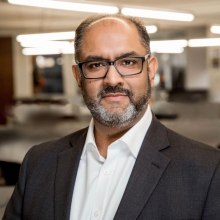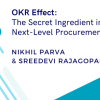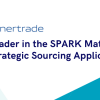The Role of a Procurement Center of Excellence
Centers of Excellence, or CoEs, are part and parcel of every progressive procurement organization. In the strict sense, they’re internal bodies that perform knowledge-based services on a one-to-many basis for the procurement function and other related stakeholders.
In this piece, I discuss the role of the Center of Excellence in a procurement department, the types of issues they grapple with, and how can they work to ensure that they’re playing a strategic role and helping to facilitate real change across the procurement team.
In order to make a CoE into a performance-enabling powerhouse, they should be set up to support across categories and enabling the procurement function as a whole, and then specific categories individually.
What this means is that the CoE should be performing key activities, such as:
- Disseminating knowledge in the form of best practices, market intelligence and more
- Looking for opportunities to promote collaboration across category teams
- Acting as the clearing house for processes, methodologies, models, etc.
- Optimising and homogenizing operations and processes, where appropriate
- Focusing on enabling innovation and continuous improvement
- Establishing and maintaining the metrics and mechanisms to monitor and measure performance and success
- Providing targeted management support on key strategic initiatives
In fact, with the right model, the CoE should act as an incubator that nurtures, cultivates and develops high performers who then feed into the broader organization, “upskilling” as they go along.
The practical reality, though, can be quite different. At times, many CoEs get pulled away from this broader vision and get caught up with more tactical activities. This manifests itself in many different ways. For example:
- They become “librarians” of information versus true insight providers
- They adopt “one-size-fits-all” type solutions to try and solve all client problems (what I call the lowest common denominator problem)
- They spend far too much time managing vendors of tools and resources and less time interacting and understanding how to optimize processes and results
- They try to please every internal stakeholder and stretch themselves too thin
So why does this happen?
- Lack of leadership commitment toward the CoE: it’s often an after-thought and isn’t enabled correctly. If the boss doesn’t really buy it, who else will?
- The wrong people staffed in roles across the CoE: often the wrong people without enough experience and knowledge to do the job being asked of them
- Lack of sufficient resources for the charter of the CoE, which is why so many get stretched so thin
- Lack of process, structure and rigor in execution – from what you choose to do to when it gets done and for whom – or the ability to say no
- Insufficient budget for the necessary tools and resources: not everything is about money but it certainly helps to have the right tools to get things done
In summary, the problems are mostly down to commitment, resources and discipline.
How to Ensure CoE Success
As the boss, you have ultimate responsibility. Here’s a checklist of what you need to do before you complain that your CoE isn’t doing what you want:
- Are you providing clear and ample executive sponsorship and support – are you promoting your CoE as the A-team to the category leadership and the rest of the procurement organization, one that can help enable them to get their objective met?
- Have you budgeted for the CoE accordingly – ensuring they are enabled with the tools and technologies they need to do a great job?
- In line with that, have you brought the right level and quality of people to this team? Did they come from the business with the right knowledge? Did they bring specific technical and operational expertise?
- Have you staffed to the right level and number of folks?
- And then – acknowledging the fact that budgets will vary and we’re all budget constrained, have you tailored their charter to ensure their prime focus areas for a given year or quarter are aligned to what they can actually do?
- Are you tangibly capturing customer feedback with regard to the performance of the CoE, its team members and their contribution to the procurement vision?
CoE leaders and team members can also take the initiative to broaden their horizons and deliver more value, using the following checklist:
- Have you set up performance mechanisms, dashboards, and KPI reports that provide more visibility and analytics into both the function overall, but also individual categories and special projects?
- Have you developed tailored but re-usable strategic frameworks for category teams to drive deeper strategy execution, such as category playbooks?
- How are you encouraging and facilitating effective cross-category best practices – or as I prefer to call it, better practice sharing to enable learning and continuous improvement?
- Have you developed an inventory of key processes that can be homogenized and optimised to drive more efficiency across the procurement organization?
- Do you have a mechanism, a charter, a push to create “purpose-driven disruption” by being on the lookout for resources, assets, tools and technologies to shake up the way things are done?
For many procurement departments today, budgets are tight, finding people is hard and there’s a serious amount of work to be done here. But making a CoE work doesn’t mean over-investing, over-spending or over-resourcing. It’s about working with what you have, setting the goals upfront, communicating those goals to everyone, measuring against the goals and showing support for a clearly defined agenda.









